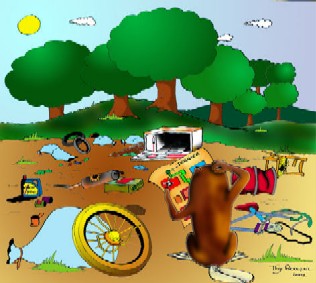|
|
|
|
|
|
|
News & Views item - October 2006 |
![]() Poll Finds More than 80% of UK academics do not Support Government's Proposals
for the Replacement of the RAE.
(October 12, 2006)
Poll Finds More than 80% of UK academics do not Support Government's Proposals
for the Replacement of the RAE.
(October 12, 2006)
While the Research Quality Framework Development Advisory Group (RQFDAG) continues to suffer from cognitive diverticulitis, and the President of the Australian Academy of Science bemoans the fact that only one in five of applicants for Australian Research Council Discovery Grants receives funding and literally thousands of deserving research initiatives are rejected, the absurdity of the RQF is further demonstrated by events in Britain where The Guardian reports more than 80% of academics do not support government proposals for the future of research funding, according to a new poll from the University and College Union (UCU).
the UCU's joint general secretary, Sally Hunt, says "The RAE is a fundamentally flawed system which has done enormous damage to research, scholarship and teaching in higher education. It has led to the unfair treatment of staff, particularly women, and to departmental closures and job losses.
"Academics are keen for a change from the RAE, but metrics are not the right change. In fact, they are a step backwards. The main problem with the government review is its narrowness - both in terms of its remit and its apparent domination by government interests. It is incredible that proposals were drawn up without any representation from the people who do the research.
"Although the voice of the profession is absent from the government proposals, we will continue to press for it to be properly heard." (emphases ours)
The Guardian also reports that the British Academy has expressed its concern about the RAE reforms. In its submission to the Department for Education and Skills consultation, the academy said research assessment needs to be slimmed down and made less bureaucratic and burdensome, but warned that a "hasty move to metrics would be ill-advised".
The academy's chief executive, Robin Jackson, said: "The RAE underpins the funding council arm of dual support. The adoption of a wholly metrics-based approach to research assessment, especially one based on external grant income, could undermine dual support, discourage long-term research and destabilise funding for research in the humanities and social sciences."
Are we in Australia really going to witness the Federal Government press on with what is looking increasingly like an ideological face saving exercise only to have to go through the future expense and agony of undoing the detritus it will generate?
